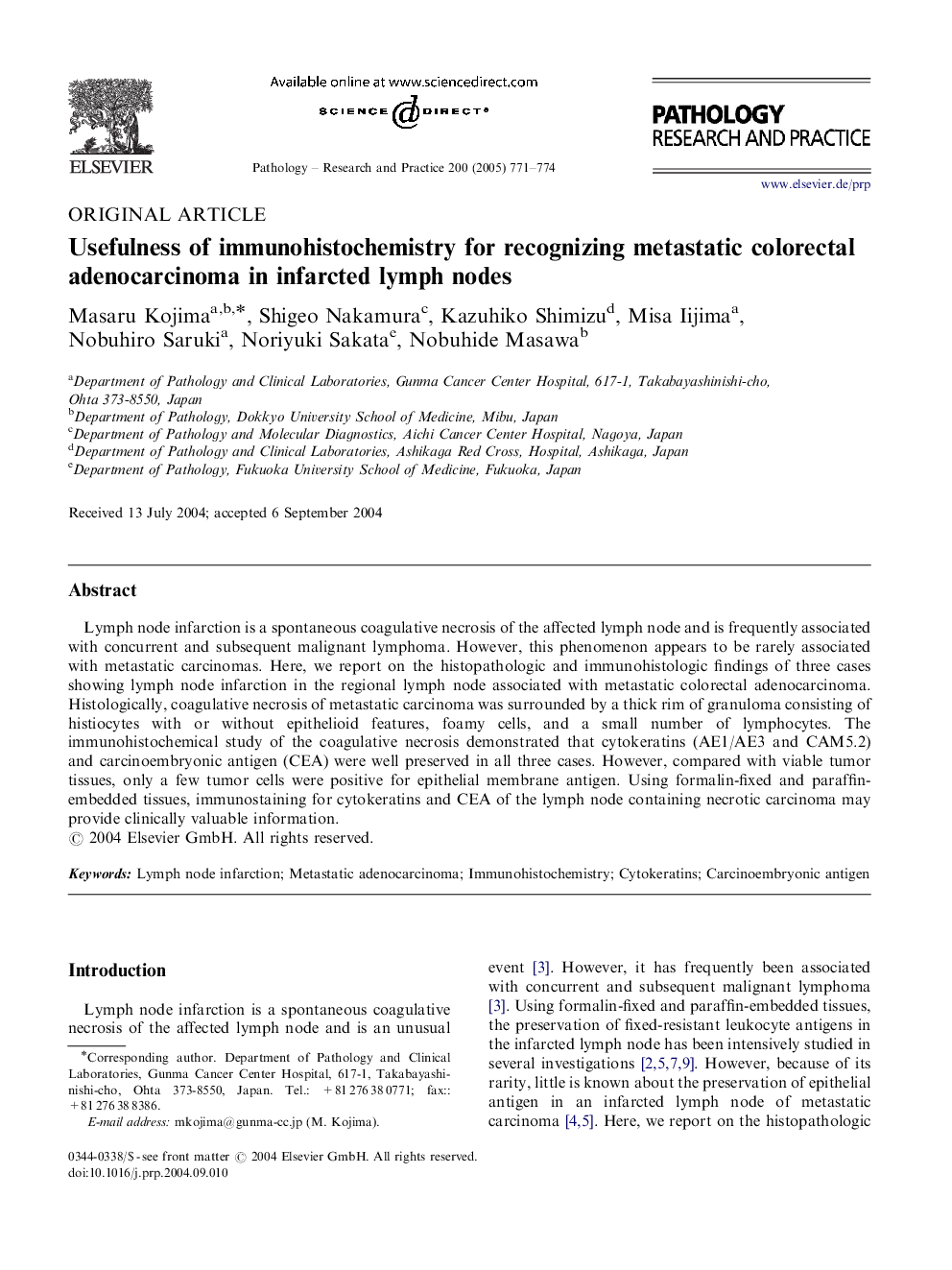| Article ID | Journal | Published Year | Pages | File Type |
|---|---|---|---|---|
| 9910910 | Pathology - Research and Practice | 2005 | 4 Pages |
Abstract
Lymph node infarction is a spontaneous coagulative necrosis of the affected lymph node and is frequently associated with concurrent and subsequent malignant lymphoma. However, this phenomenon appears to be rarely associated with metastatic carcinomas. Here, we report on the histopathologic and immunohistologic findings of three cases showing lymph node infarction in the regional lymph node associated with metastatic colorectal adenocarcinoma. Histologically, coagulative necrosis of metastatic carcinoma was surrounded by a thick rim of granuloma consisting of histiocytes with or without epithelioid features, foamy cells, and a small number of lymphocytes. The immunohistochemical study of the coagulative necrosis demonstrated that cytokeratins (AE1/AE3 and CAM5.2) and carcinoembryonic antigen (CEA) were well preserved in all three cases. However, compared with viable tumor tissues, only a few tumor cells were positive for epithelial membrane antigen. Using formalin-fixed and paraffin-embedded tissues, immunostaining for cytokeratins and CEA of the lymph node containing necrotic carcinoma may provide clinically valuable information.
Related Topics
Life Sciences
Biochemistry, Genetics and Molecular Biology
Cancer Research
Authors
Masaru Kojima, Shigeo Nakamura, Kazuhiko Shimizu, Misa Iijima, Nobuhiro Saruki, Noriyuki Sakata, Nobuhide Masawa,
